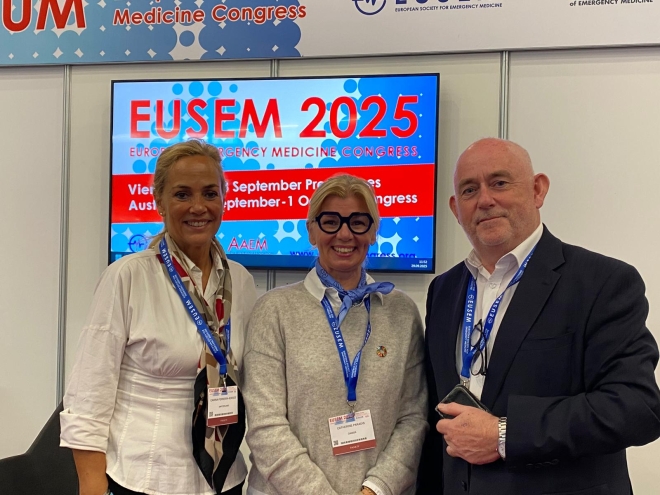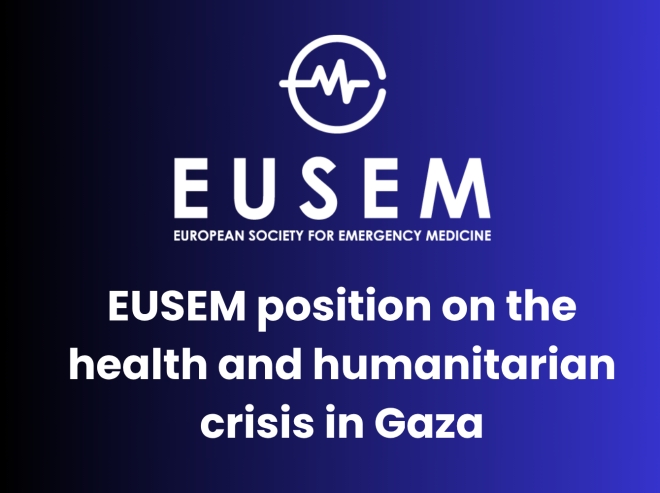EUSEM President Dr. Robert Leach Joins EU Parliament Discussion on Future Emergency Communications Legislation, Addressing Wartime Response Challenges
On December 2, EUSEM President Dr. Robert Leach was invited to participate in a discussion at the European Parliament in Brussels on the "Future EU Legislation on Emergency Communications," organised by the European Emergency Number Association (EENA 112).
The event, hosted by Grégory Allione, MEP, focused on the Union Civil Protection Mechanism. During the session, Ukraine's Deputy Minister of Internal Affairs, Leonid Tymchenko, presented on the challenges of maintaining emergency response networks during wartime. Also present at the event was Hans Das, the Deputy Director-General of ECHO (European Civil Protection and Humanitarian Aid Operations).
After the discussion, the Deputy Minister and Dr. Leach visited the 112 emergency centre in Brussels.
The attached image shows Dr. Leach with Ukraine's Deputy Minister of Internal Affairs, Leonid Tymchenko






